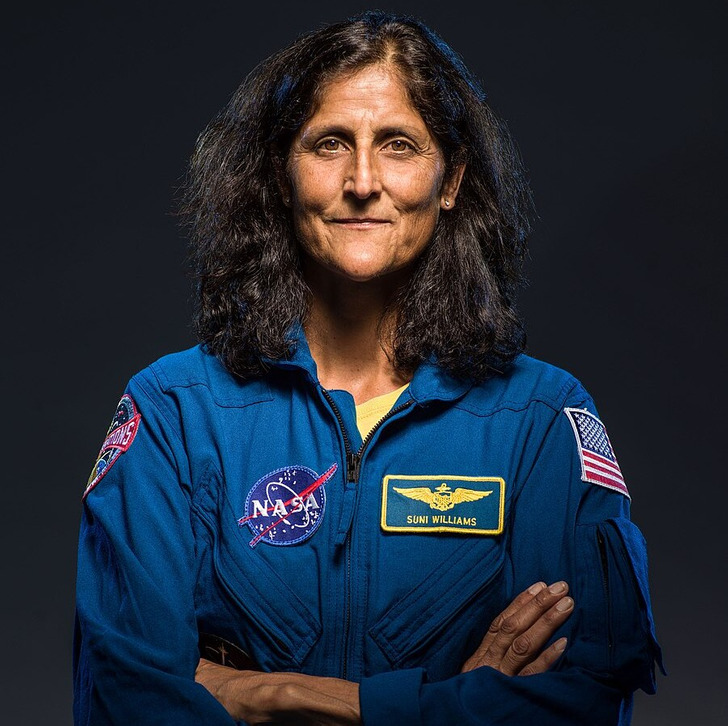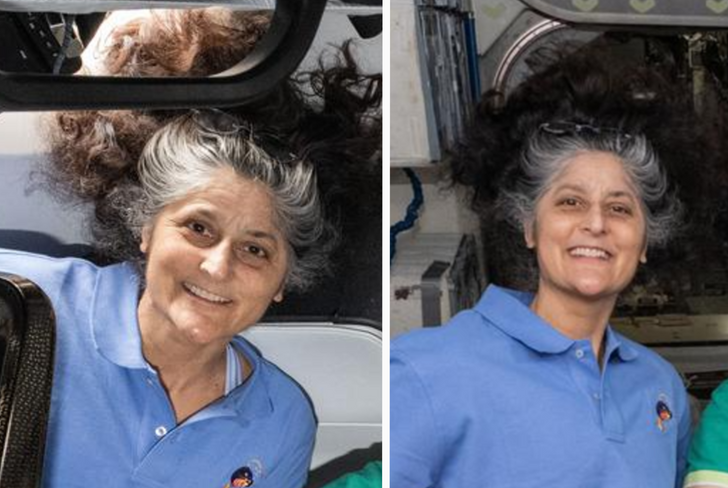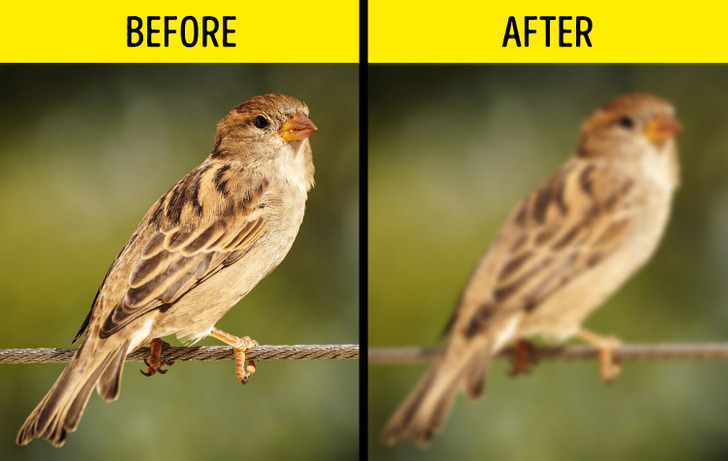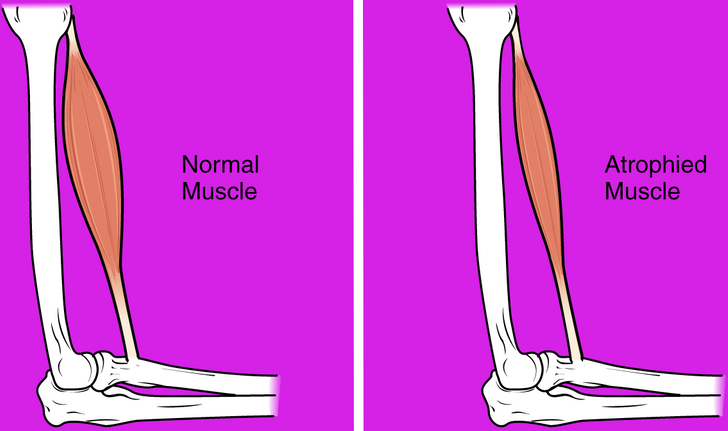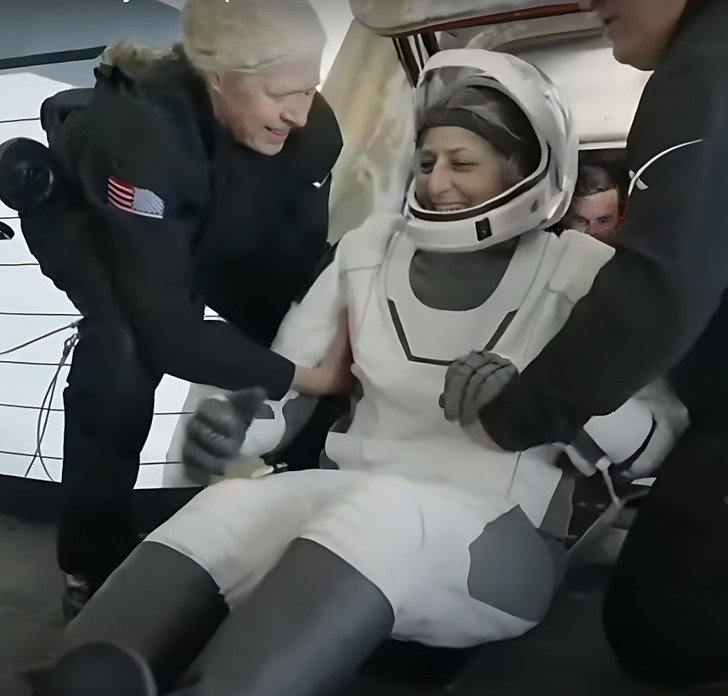wow
8 Ways NASA Astronauts’ Bodies Change After 9 Months in Space
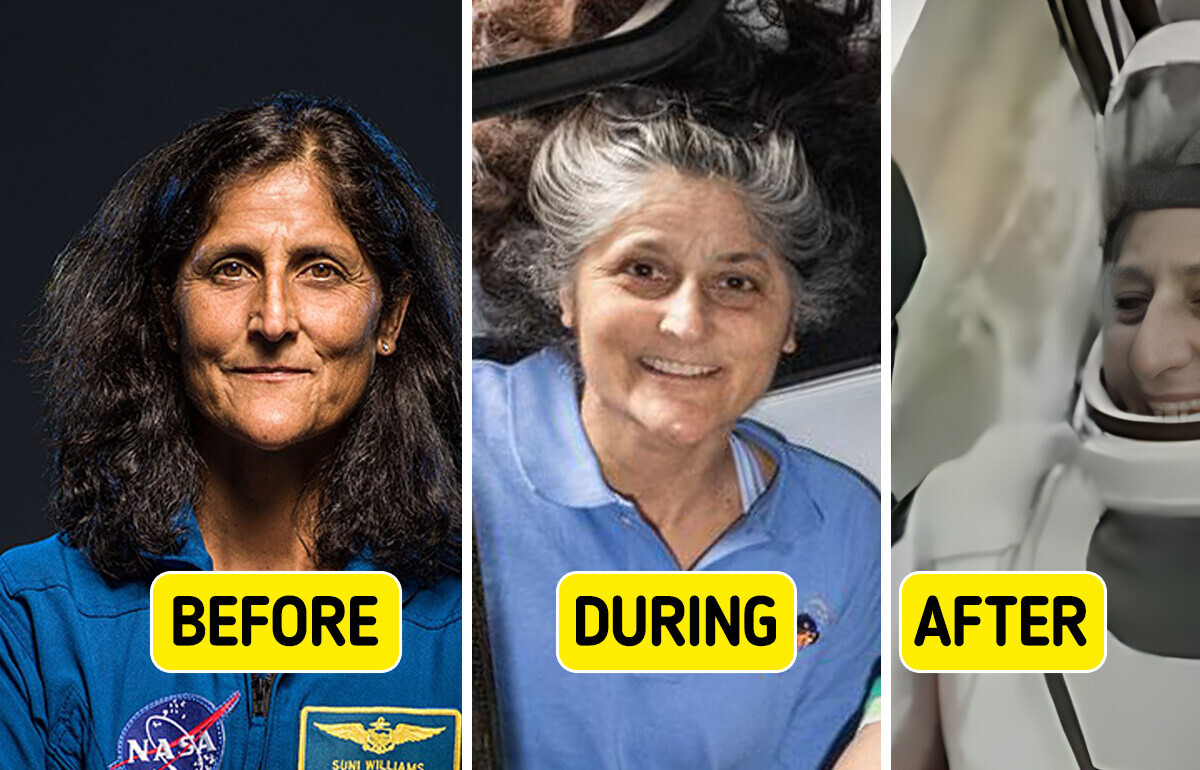
Astronauts Butch Wilmore and Suni Williams launched into space on June 5, 2024, for what was supposed to be a quick 10-day mission aboard the International Space Station. But then… the thrusters malfunctioned.
NASA made the call: Stay on the ISS until a safe return is possible. The result? They spent a jaw-dropping 286 days in space—making them one of the longest-serving NASA astronauts on a single mission.
🛰️ So what exactly happens to the human body after floating in microgravity for that long? We’ve got the answers. It turns out, you don’t need to be a rocket scientist to find this fascinating. Just click, scroll, and be amazed at what the human body can do when Earth’s gravity takes a break.
1. Height increase
Without gravity compressing the spine, astronauts can experience a height increase of up to 3% over the first 3 to 4 days of weightlessness in space. This is due to the changes in the spinal column. Upon returning to Earth, gravity restores their original height within a few days.
2. Bone density loss
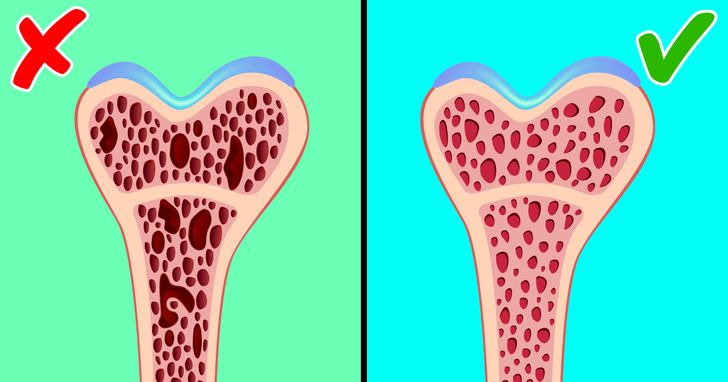
Bones require mechanical stress to maintain their density. In space, the lack of gravity-induced stress results in bone density loss, particularly in weight-bearing bones like the hips and legs. Astronauts can lose about 1% of bone mass per month, a rate significantly higher than the loss observed in elderly individuals on Earth. This reduction increases the risk of fractures and poses challenges for long-duration missions.
3. Cardiovascular changes
In microgravity, the heart doesn't work as hard to pump blood upward, leading to a slight decrease in heart muscle mass and volume. This can result in low blood pressure and dizziness upon return to Earth's gravity. However, most astronauts' cardiovascular systems readjust over time, especially with proper rehabilitation.
4. Fluid redistribution

5. Radiation exposure
Outside Earth's protective atmosphere, astronauts are exposed to higher levels of cosmic radiation, increasing the risk of cancer and potential cognitive decline. The ISS provides some shielding, but cumulative exposure remains a concern for long-duration missions.
6. Vision impairment
Spaceflight-Associated Neuro-ocular Syndrome refers to vision changes experienced by astronauts during and after extended missions. The upward fluid shift increases pressure on the optic nerve, leading to swelling, flattening of the eyeball, and vision impairment. While some effects are temporary, there is concern about potential long-term vision issues.
7. Immune system alterations
Prolonged spaceflight can weaken the immune system, making astronauts more susceptible to infections. Changes in immune cell function and the reactivation of latent viruses have been observed, highlighting the need for monitoring and potential countermeasures during and after missions.
8. Muscle atrophy
In microgravity, muscles no longer bear the weight they do on Earth, leading to muscle atrophy. Astronauts can lose up to 20% of their muscle mass in just 5 to 11 days without regular exercise. To combat this, crew members engage in approximately two hours of daily exercise using specialized equipment like treadmills and resistance devices. Despite these efforts, some muscle loss is inevitable, necessitating rehabilitation upon return to Earth.
As fascinating as space travel is, what it reveals about our biology might be even more mind-blowing. But here's the kicker: Earth or orbit, our bodies remain one of the universe’s biggest mysteries. Why does labor really start? Why do some people bounce back from trauma while others don’t? Ready to dive into more medical enigmas? You’ll be amazed at just how much we still don’t know. 🧠💫
Comments
Related Reads
Pierce Brosnan’s Wife Stuns People With Her Transformation During Her Latest Appearance

“That Surgeon Needs a Nobel Prize!” New Look of Donatella Versace Creates Online Stir

14 People Who Uncovered the Disturbing True Face of Their Friend

Brad Pitt’s New Partner Is an Angelina Jolie «Look Alike,» According to People Online

10+ True Events That Get Creepier the More You Read

10 Dads Who Unexpectedly Embraced Their Daughters’ Partners

Pierce Brosnan’s Wife Shares a Touching Tribute to Him, Stuns Fans With Her Transformation

I Refused to Let a 5 Y.O. Attend My Daughter’s Party—Now They Say I’m Cruel

14 People Who Just Went With the Flow and Ended Up With a Story Worth Telling

I Absolutely Refuse to Give Up My Apartment for My Sister and Her 3 Kids

I Refuse to Be Held Responsible for the Parents Who Abandoned Me

I Quit After My Boss Punished Me for Attending My Mom’s Surgery

